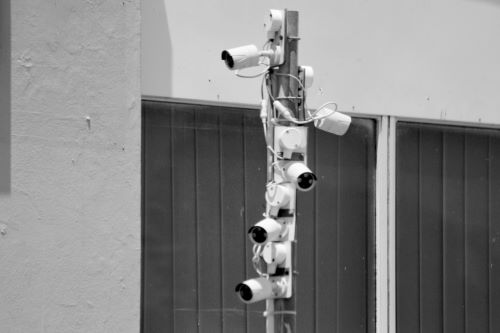 How important is the safety of workers and customers to us as the risk of theft and violence appears to escalate in the retail sector? The sometimes conflicting obligations owed by employers under Privacy laws and Health and Safety laws are being worked through by some of our biggest retail companies.
How important is the safety of workers and customers to us as the risk of theft and violence appears to escalate in the retail sector? The sometimes conflicting obligations owed by employers under Privacy laws and Health and Safety laws are being worked through by some of our biggest retail companies.
In Australia, Bunnings was publicly admonished last week by the Australian Privacy Commissioner after concluding that it had breached the privacy of potentially hundreds of thousands of customers by using facial recognition technology (FRT) in a trial it was running in New South Wales and Victoria.
Bunnings said it used the FRT to protect staff against "serious" crimes and violent interactions it says are carried out by a "small number of known and repeat offenders". In criticising the report Bunnings released confronting CCTV footage of violent customer incidents. The compilation footage shows customers threatening Bunnings staff members with weapons and physically attacking them. Bunnings managing director Mike Schneider said "everyone deserves to feel safe at work. No one should have to come to work and face verbal abuse, threats, physical violence or have weapons pulled on them."
In responding to the report, Schneider said "We had hoped that based on our submissions, the Commissioner would accept our position that the use of FRT appropriately balanced our privacy obligations and the need to protect our team, customers, and suppliers against the ongoing and increasing exposure to violent and organised crime, perpetrated by a small number of known and repeat offenders".
In New Zealand, the supermarket industry giants are using digital recording technology in an effort to make staff and customers safer. Woolworths is rolling out body cameras at stores as part of a $45million investment in staff safety measures. In a trial in 17 stores the supermarket chain reported that staff felt safer and that the cameras helped de-escalate conflict and abuse from customers.
Woolworths says that physical assaults more than tripled in the last six years from about 60 in the 2018 financial year to about 230 in 2024 and that thefts also tripled from about 5500 to 15,000 in the same period. Verbal threats are said to be on the rise as well. "These range from threats to injure, threats to come back after the store is closed, threats to kill. It's really awful and unacceptable" Woolworths head of health safety and wellbeing Denva Wren reported.
Foodstuffs is trialling FRT to scan and make a biometric template of each shopper as they enter their premises to see if they match a watchlist of people identified with repeated harmful behaviours. To support the implementation of the trial Foodstuffs says there were 4719 incidents of retail crime reported in their stores in the last quarter of 2023, including 513 trespass breaches.
Foodstuffs North Island chief executive Chris Quin said the trial was important because the company hoped to establish whether facial recognition would keep staff and customers safe without compromising their privacy. He said "Shockingly, one of our security team was stabbed recently and our people are being punched, kicked, bitten and spat at.” "All too often it's the same people, coming back to our stores despite having already been trespassed, committing more crime, and often putting our team members and customers at risk of abuse and violence."
New Zealand Privacy Commissioner, Michael Webster, said the Woolworths body cameras were similar to CCTV. He said its use was not as intrusive as the FRT which is being trialled by its market rival - Foodstuffs.
At the core of New Zealand’s Health and Safety at Work Act is the requirement that all duty holders, so far as reasonably practicable, eliminate risks to health and safety. Risks that cannot be eliminated must be minimised. A business has a primary duty of care to ensure, as far as reasonably practicable, the safety and health of its workers and that others are not put at risk by the work carried out as part of the business.
In admonishing Bunnings, Australian Privacy Commissioner Carly Kind said "Facial recognition technology may have been an efficient and cost-effective option available to Bunnings at the time in its well-intentioned efforts to address unlawful activity, which included incidents of violence and aggression". She said that Bunnings chose the "most intrusive option" and interfered with the privacy of everyone who crossed the threshold of those stores in that period, not just high-risk individuals. “Just because a technology may be helpful or convenient, does not mean its use is justifiable".
The New Zealand Privacy Commissioner is taking an evidence based approach in assessing the Foodstuffs FRT trial. The awful simplicity is that while CCTV footage is helpful in prosecuting acts of violence and other crimes, those acts will have already occurred. Just as simple, elimination or prevention is far better. FRT with reasonable safeguards around privacy appears to be a useful tool in the prevention of harm to workers by repeat offenders and assist employers meeting their obligation to have a safe place of work for their employees and customers. Read more....

